The call for papers is now closed.
EECERA provides a fantastic opportunity to present your work to a supportive research community from all over the world. We would, therefore, like to encourage all of our members and the wider ECEC research community to submit proposals for presentation in line with this year’s theme: Children’s Curiosity, Agency and Participation: Challenges for Professional Action and Development.
For more details about each proposal type and how to submit, please refer to the information provided below.
If you wish to be notified about all the latest conference-related news, please subscribe to the EECERA conference newsletter.
*We would like to remind you that each applicant is permitted to submit up to TWO proposals IN TOTAL:
- EITHER a proposal for an individual paper presentation OR as part of a self-organised symposium (SOS) AND
- EITHER a proposal for a poster presentation OR a proposal for a TED-style short talk
Note: You may be the main presenter of one individual paper or as part of one self-organised symposia BUT you can be a co-presenter on multiple papers (including other individual papers and papers submitted as part of self-organised symposia, posters and PED-talks). However, bear in mind the more papers you are listed to present / co-present on, the fewer you can attend as a non-presenting delegate and the more difficult it is for us to design the programme to avoid clashes.
Proposal types
Combining text, graphics and the opportunity for dialogue with the author, a poster presentation is ideal for those who want to maximise the visibility of their work and network. Selected posters will be displayed during the designated poster symposium(s), giving poster presenters an opportunity to engage in a conversation with delegates who will be circulating around the exhibits.
When submitting your proposals for one of the above, you will be asked to enter the following information:
- The type of the presentation
- The title of the presentation
- Proposal theme and strand
- The name(s), institution(s) and email address(es) of attending presenter(s) and non-presenting co-author(s); user that adds and submits an abstract is, by default, the main presenter.
- A 250-word abstract addressing each element specified on the submission form: Research Aims, Relationship to Previous Research Works, Theoretical and Conceptual Framework, Paradigm, Methodology and Methods, Ethical Considerations, Main Finding or Discussion, Implications, Practice or Policy, Five Keywords
Posters will need to be printed in A0 format and brought to the conference by presenters.
A traditional short presentation with discussion, in a group of three (self-selected), a self-organised symposium is ideal for those who want to work collaboratively on a theme or issue and test out/get feedback on their work.
Groups propose to organise 3 papers and a moderator around a common theme as a full session of 80 minutes including discussion. For a self-organised symposium, the chair needs to submit the symposium title and summary and one abstract has to be submitted for each of the three papers presented.
When submitting your proposals for one of the above, you will be asked to enter the following information:
- The type of the presentation
- The title of the presentation
- Proposal theme and strand
- The name(s), institution(s) and email address(es) of attending presenter(s) and non-presenting co-author(s); user that adds and submits an abstract is, by default, the main presenter.
- A 250-word abstract addressing each element specified on the submission form: Research Aims, Relationship to Previous Research Works, Theoretical and Conceptual Framework, Paradigm, Methodology and Methods, Ethical Considerations, Main Finding or Discussion, Implications, Practice or Policy, Five Keywords
A traditional short presentation – 20 minutes, plus additional built-in time for discussion. Individual papers will be grouped into larger symposia by theme (scientific committee selected). An individual paper presentation is ideal for those who want to make collaborative links to others on a theme or issue and test out/get feedback on their work.
When submitting your proposals for one of the above, you will be asked to enter the following information:
- The type of the presentation
- The title of the presentation
- Proposal theme and strand
- The name(s), institution(s) and email address(es) of attending presenter(s) and non-presenting co-author(s); user that adds and submits an abstract is, by default, the main presenter.
- A 250-word abstract addressing each element specified on the submission form: Research Aims, Relationship to Previous Research Works, Theoretical and Conceptual Framework, Paradigm, Methodology and Methods, Ethical Considerations, Main Finding or Discussion, Implications, Practice or Policy, Five Keywords
This 10-minute long address delivered without notes or slides is based on the concept of the TED-style presentation approach; concise and simple, it is an ideal presentation for those who want to pitch a new, often personal, thought-provoking idea, issue or approach. Only the best short talk presentations will be selected and clustered into groups of 5.
Short talks should be personal and narrative, about a topic the speaker is knowledgeable about and feels deeply passionate about. Any superfluous information is taken out of the speech for the sake of time. Every second counts in this short 10-minute address.
Speakers choosing this delivery type should take the listeners on a journey, telling a story, evoking the imagination of the audience. Each group of 5 will be given an additional 10 minutes at the end of their talks to take questions.
Short talk proposals have to correspond with the themes of EECERA Special Interest Groups (SIGs). When submitting your proposals for a short talk, you will be asked to enter the following information:
- The title of the presentation
- Your name, institution, country and email address(es)
- A 250-word abstract setting out
- The chosen issue
- The personal rationale for choosing this issue
- Key elements in the content of the presentation

